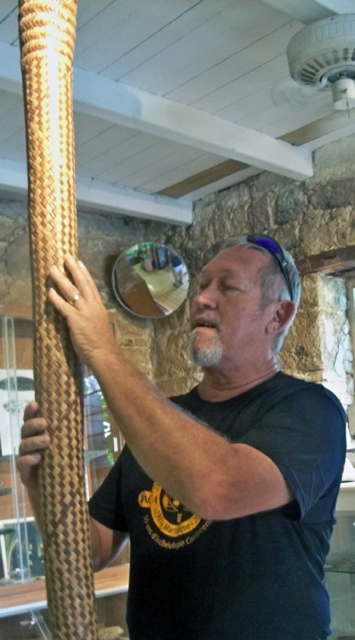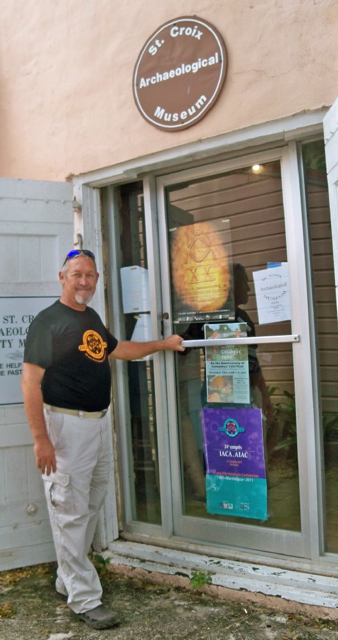
The society is dedicated to getting residents and visitors excited about the pre-Columbian history of the island. That’s a pretty tall order, as the island has been inhabited for at least 2,000 years.
“A lot is known about the six hundred years since Columbus arrived here; it the the thousands of years before his arrival that we are concerned about," says John Farchette III, one of the four founders of the organization and interim chairman of the board, during an interview Saturday in the society’s home at the St. Croix Archaeological Museum in Christiansted/
Many people are familiar with the names of such indigenous cultures as the Taino and Carib, both of whom were probably on the islands when Columbus arrived, probably near Salt River, in 1493. But the society also wants to know more about the Saladoid and Elenan Ostionoid cultures that inhabited St. Croix more than a thousand years before the Christian era began.
One way the society educates others about the pre-Columbian cultures is by collecting artifacts used in the day-today lives of those ancient people. A wide array of those artifacts are on display at the St. Croix Archaeology Museum, off the Luncheria Courtyard in Christiansted. The building holding the museum is a bit of a historical piece itself. It was part of the Danish period Apothecary complex dating back to 1832.
The museum is open from 10 a.m. to 2 p.m. Saturday and admission is by donation.
Farchette mans the museum during its open hours with another founding member, David Hayes, who was also present at the recent interview.
Hayes, former president of the society, has been crucial in using all his experience as a professional archaeologist to put the society on the right track. He drew up the code of ethics for the society that can be found at its webpage at http://stcroixarchaeology.org/.
Such a code for archaeologists is extremely important he said. One can think about the controversy still going on about the Danish taking artifacts from the Taino ball court at Salt River and shipping them back to Denmark to understand why.
The society brings its education efforts directly to children by setting up tours for a couple of hundred public and private school students each year.
Farchette said if the society had more volunteers this effort could be expanded to include more students. The efforts work a little both ways as one of the museum’s dioramas, depicting a Tano village, was made by students at Pearl B. Larsen Elementary Schools.

Farchette said the group also does a special fundraising talk on Nov. 14 to mark Columbus landing on St. Croix in 1493.
Many things can be quickly learned in a visit to the small one -room museum.
The Saladoids were the first cultured people on St. Croix to be ceramic artisans. They probably migrated from South.America about 2,000 years ago. The name is coined from the Saladero region in Venezuela. What is really amazing about the Saladoid pottery at the museum is that the red and white paint is still on them.
“Think how often we would have to paint our houses in 2,000 years,” Farchette says.
The Tainos might be the culture that gets the most focus in the museum. Farchete says the Tainos were a matriarchal society. He adds that their highest deities were female and the Tainos worshipped ancestors along the female line. In one of the books at the museum counter he showed illustration of the female deities.
The other two founding members of the society are Gary Bourdon, and Robert White.
Information about the society can be obtained by calling Farchette at 332-2312.





